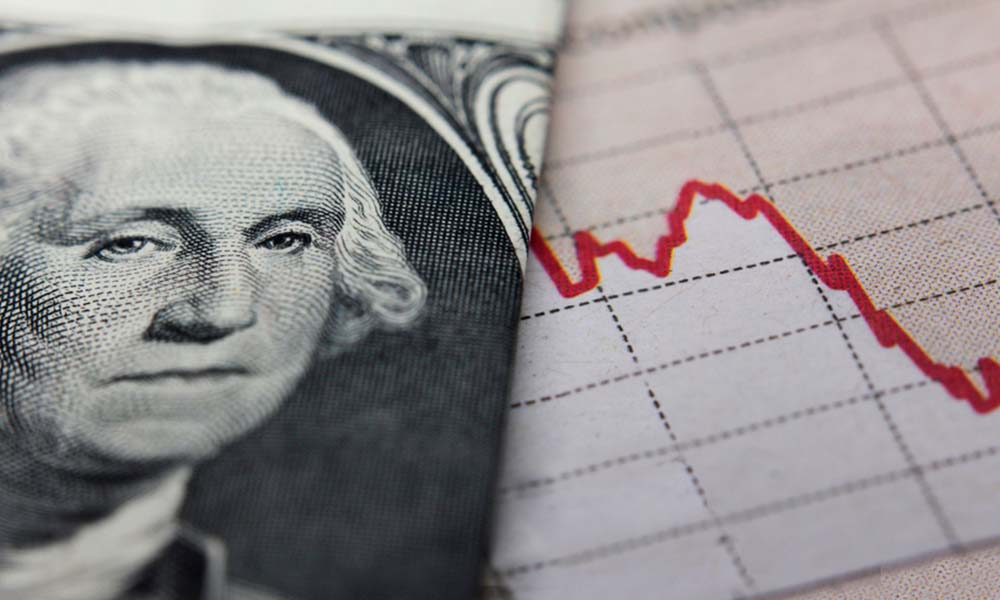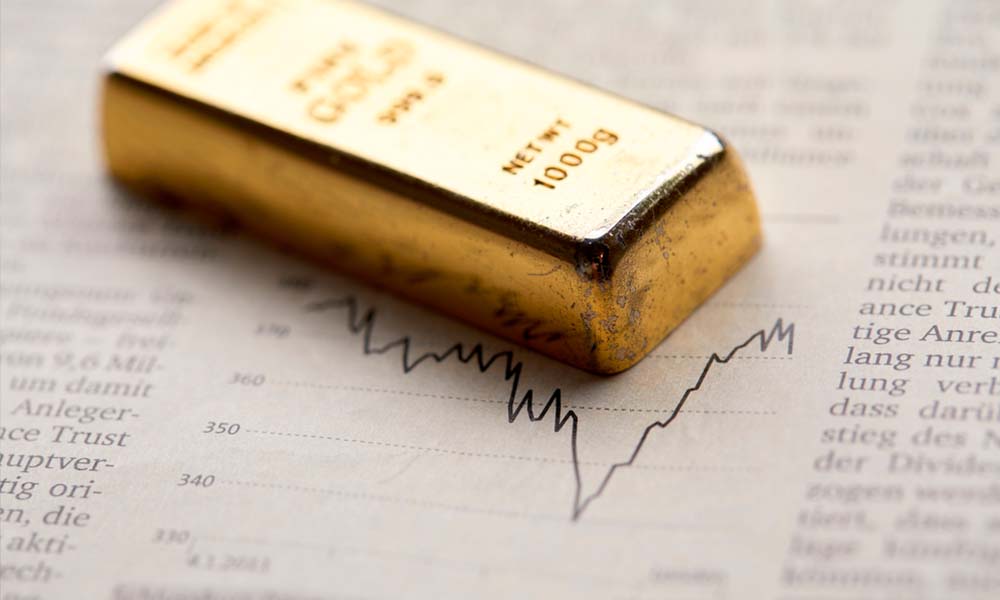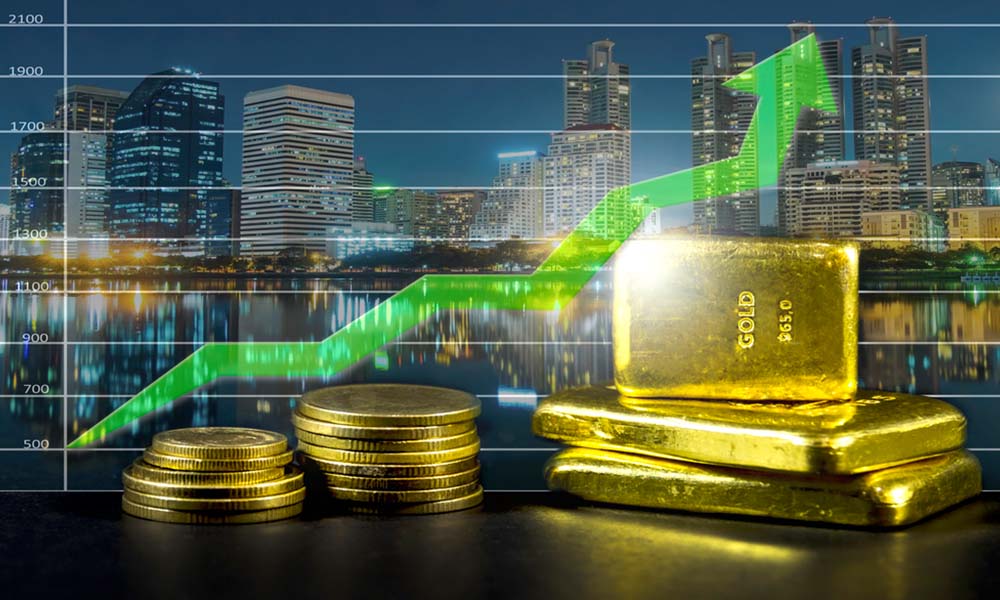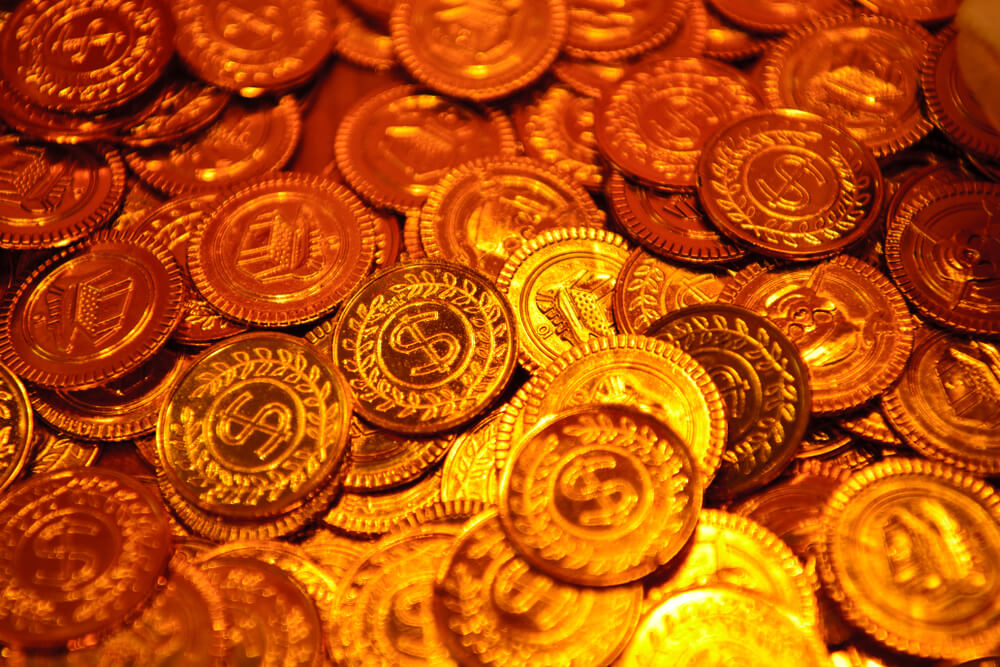
What Happens to Gold When the Stock Market Crashes?
It’s a well-known investment theory that when the financial markets crash, the price of precious metals, such as gold and silver, see an upsurge. Several financial catastrophes from the past have proven the inverse correlation time and again.
But, contrary to general perception, the rise in gold prices during a market crash is not a given or not as meteoric as one thinks. The upward push in prices in the past has been slow and even delayed. For example, it took six years for the price of gold to go to $35 per ounce from being $20.67 an ounce during the Great Depression.
However, the overarching sentiment is that gold prices go up when Wall Street feels the heat or when important world regions are in disarray. Before your paranoid thoughts push you into acquiring gold by the hordes, it’s essential to understand what truly happens to gold when the stock market crashes.

In this article, we’ll discuss:
- The significance and relevance of gold in the modern world
- How gold went on to become the asset of choice during political chaoses
- How the stock market and gold share an inverse price relationship
- What role do the industry and buyers play in driving gold prices during a political or economic crisis
- What form of gold is the correct type of investment, and more.
As someone with fundamental investment and market knowledge, you should be aware that gold rises in value when prices of company stocks and other paper assets fall. But if you don’t know why, this article should provide you with all the information you need.
Table of Contents
Gold: A Brief Intro to Its Significance
Gold is a finite, non-perishable precious commodity. It’s a metal with strong and reasonably consistent demand since it has varied applications or is used in a wide range of industries — manufacturing, jewelry, medicine, etc.
How is Gold Still Relevant?
The modern investor who dabbles in stocks, bonds, and even cryptocurrencies such as bitcoin and dogecoin looks down upon gold. They view the yellow metal as a relic from the past that is no longer monetarily valuable as it was before. However, if you ask proponents of gold investors, they’ll have a completely different picture to paint, and quite rightly so.
Gold has several intrinsic qualities, making it unique and essential for investors to have the precious metal in their portfolios. On the other hand, paper currency is only paper if the issuing central bank doesn’t back it. And that is one of the significant reasons people flock to the metal in swarms when their paper assets (such as stocks, bonds, paper currency, etc.) cease to be any more valuable than a piece of paper.
While gold isn’t pegged to the US dollar or other currencies anymore (due to the abandonment of the gold standard), it still holds significance in modern society or is relevant to the world economy. The balance sheets of financial institutions, such as the IMF (International Monetary Fund) and central banks holding close to a fifth of the above-ground gold supply of the world is a clear indication.
Gold Holds Its Own During a Political Turmoil
Never in its history has the civilized world ever been entirely at peace. With billions of people from diverse backgrounds inhabiting Earth simultaneously, there are bound to be tensions in some part of the world at any given time. Such political uncertainty naturally lugs economic troubles. And during such times, gold becomes a haven, and fiat currency loses its ground.
How did gold assume the “safe haven” reputation during political unrest? History suggests investors who held their money in gold during a collapsing empire or a political coup safeguarded their wealth a lot better than those who chose to keep liquid funds handy.
As a result, buying gold every time news of global political mayhem or economic ambiguity grabs the headlines has become customary or the next logical thing to do.
Why a Financial Market Crash Drives Gold Prices?

During economic uncertainty, investors get worried about their investments. And in that frenzied state of mind, quite a lot of them frantically put their money in an asset with intrinsic value, such as gold, hoping their savings or investment money won’t further erode in value.
When a substantial chunk of investors resorts to the measure simultaneously, they inadvertently drive the precious metal’s price higher than usual. And all of a sudden, gold assumes more value than before.
What Happens After the Market Crash?
When the stock market regains its balance, the craze for gold decreases as faith in fiat currency and paper assets is restored. Like before, people start putting their money back into stocks, bonds, mutual funds, ETFs (exchange-traded funds), etc.
All of these events cause gold prices to touch base again. But the prices are usually not at pre-stock market crash levels. A market crash doesn’t happen often. And for most investors, it’s their first time enduring the event and also realizing or seeing first-hand the resilience or phoenix-like nature of gold during the tough times.
As a result, several investors continue to stay invested in gold, causing a decrease in the amount of gold readily in supply, thereby ensuring slightly higher prices. Even if gold prices fall dramatically after all the market frenzy is over, it goes up in prices gradually over a period.
In short, there’s no empirical reason behind prices of gold going up when stock markets crash. The price movements are primarily linked with investor sentiments. And those feelings are deep-seated in the belief that gold’s value will never collapse to zero. That reason alone should strongly indicate why the yellow metal’s price goes up during an economic crisis or times of uncertainty.
Industry Speculation Influences Gold Prices
Speculation is another big reason for gold price movements. Investors and market watchers speculate the next moves of central banks and governments and function accordingly. If governments announce stimulus programs to boost the economy and consolidate currencies after a financial crisis, gold prices would likely drop.
Why a Financial Market Crash Drives Gold Prices?
Gold rates do not go up on the eve or the day after a stock exchange crash. According to a Trinity College study, it typically takes around 15 days to see changes in prices after a stock market crashes. Based on the particular event, it could be earlier or later.
Buying gold during such periods is not wise. One should purchase gold at least two weeks before the market starts to disintegrate. But since it’s not that easy to guestimate when that would be, it’s advised to have a chunk of gold in your portfolio at all times.
What Form of Gold is Right for Investment?

Gold comes in different forms — such as jewelry, coins, bars, bullion, etc. If you’re looking at the metal from a financial perspective, discard jewelry. Gold coins and bars will serve your purpose the best. They are the purest and devoid of the design intricacies that shoot up the final product’s prices, like in the case of jewelry.
Gold securities – such as gold stocks and mutual funds – have their place too. But they are not recommended if you’re wary of the unpredictable nature of the stock market. For example, if you invest in stocks of a gold mining company, the stock’s price could reflect the firm’s market position and financial health more than gold’s spot price.
Buying physical gold has its downsides too. For starters, there’s the security risk or the need to find a secure environment to store the metal. It’s not advised to keep the gold at home or any personal property. You must store gold with third parties such as banks, brokers, or other financial firms.
A lot of people invest in gold through an IRA. While a gold IRA is by no means perfect, it’s undoubtedly devoid of most of the issues mentioned above, which are synonymous with other forms of gold investments.
Conclusion
Investors who benefit the most from investing in gold do not hold money in the precious metal anticipating economic volatility or an untoward global event. In other words, it’s imperative not to draw a direct correlation between gold and the stock market.
Individuals who find their gold investments advantageous are the ones who did not rush to buy the metal right after, during, or before an economic crisis. They do not wait for an economic distress to take place to buy gold. They, in fact, have zero thoughts about the economic environment when making their gold purchases.
The right form of gold investment is one that suits your investment strategy. If you’re saving for retirement and would like gold to be a part of that mix, look to a gold IRA. The self-directed IRA lets you buy gold coins, bars, gold-based securities, etc., through one account. It’s secure, tax-deferred, guarantees physical gold purity and quality, etc.
Click here to learn more about the retirement savings plan.
FAQs
How low can gold prices possibly go?
Fiat money could lose its total value and become just another piece of paper. But that would never happen to gold since it’s intrinsically valuable or cannot be made by humans — certainly not as easily as paper money.
Since mining gold is cost-intensive, the price of gold would never go below its mining costs. And because those costs usually go up each year, gold prices tag along. Even if all the gold under the Earth’s surface is mined, the continual demand for the metal almost guarantees a premium attached to it perennially.
If gold rates drop below their mining costs for some reason, mining operations will stop since it would no longer be worth it for the concerned businesses. And when mining stops, no newer gold enters the market, thereby spiking gold demand and, ultimately, the prices.
Do gold prices continually rise?
If gold prices had continually risen, they would have been way higher than the $1800 an ounce gold currently (as of October 2021) sells for.
Though gold costs more today than it did a few decades ago, it has had more than its fair share of tumbles, as illustrated in this chart.
Should you buy gold during a market crash?
As alluded above, it’s unwise to buy gold when the financial markets are in a state of disarray since the rates would be higher than usual. Also, do not sell your stocks because that would also be a loss-making affair.
During a stock market crash, the best thing to do is to stay calm and not initiate any financial transaction. The worst thing you could do is sell your stocks and buy gold with those proceeds.
Whether it’s gold, stocks, real estate, or any other asset type, the best time to accumulate assets is when people are selling them in bulk, usually at a price lower than normal.
Is it advised to buy gold during high inflation?
Contrary to general perception, gold is not as good as a guard against rising prices as it is against crashing financial markets. When inflation is high, prices of assets such as gold, housing, stocks, etc., also rise — the phenomenon referred to as “asset inflation”. And it goes without saying that procuring gold during such periods is ill-considered.
As an “inflation safeguard”, however, gold is a good asset to buy because the price of gold also goes up when prices of commodities and everything else is on the rise.


